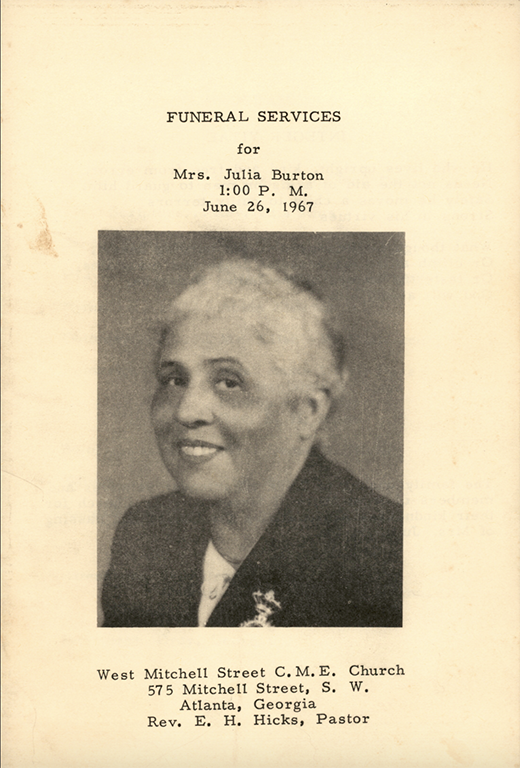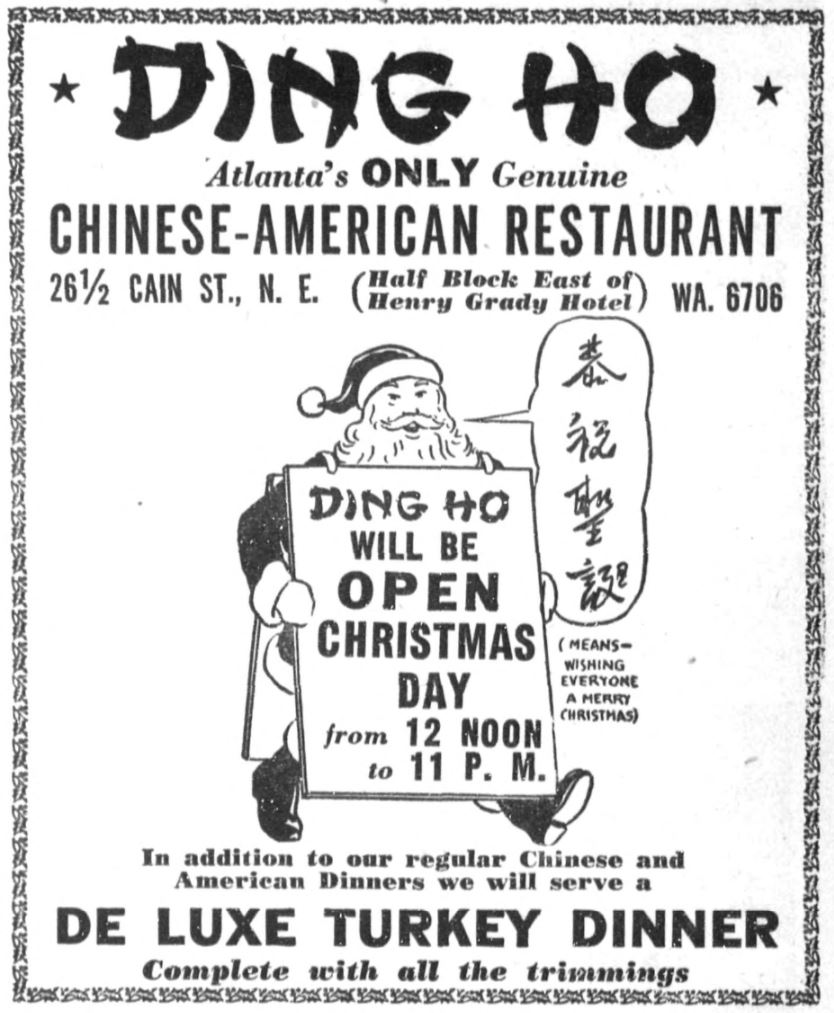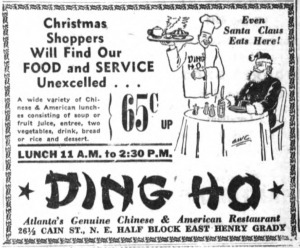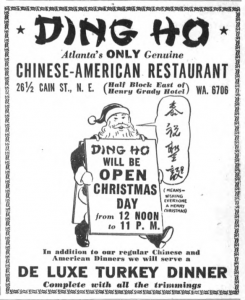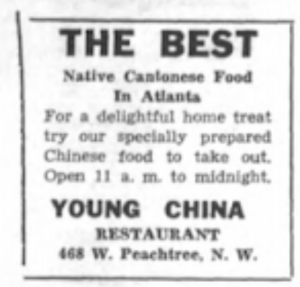CONTACT: Deborah Hakes, dhakes@georgialibraries.org
ATLANTA– Over 11,500 pages of digitized African American funeral programs from Atlanta and the Southeast are now freely available in the Digital Library of Georgia. The digital collection of 3,348 individual programs dates between 1886-2019 and contains contributions from the Auburn Avenue Research Library on African American Culture and History, a special library of the Fulton County Library System; the Wesley Chapel Genealogy Group; and the Atlanta Chapter of the Afro-American Historical and Genealogical Society. Digitization was funded by Georgia HomePLACE, a program of the Georgia Public Library Service.
“Funerals are such an important space for African Americans, said Auburn Avenue Research Library archivist and lead project contributor Derek Mosley. “The tradition of funerals is not reserved for the wealthy or privileged, but the community. It is that lasting document of someone’s life. In the program is the history and throughout this collection, you see the evolution of the stories people left for future generations. I was amazed at the one-pagers from the 1940s, and by the 2000s there was full color, multiple pages, and a ton of photographs highlighting the life and love shared by the families. This collection is public space for legacy.”
Funeral programs provide valuable social and genealogical information, typically including a photograph of the deceased, an obituary, a list of surviving relatives, and the order of service. Some programs provide more extensive genealogical information about the deceased, such as birth and death dates, maiden names, past residences, and place of burial. This data that can otherwise be hard to find, particularly for marginalized populations. The records of these communities were often either destroyed, kept in private hands, or never created in the first place.
“The challenge for African American genealogy and family research continues to be the lack of free access to historical information that can enable us to tell the stories of those who have come before us,” said Tammy Ozier, president of the Atlanta Chapter of the Afro-American Historical and Genealogical Society. “This monumental collection helps to close this gap, allowing family researchers to get closer to their clans, especially those in the metro Atlanta area, the state of Georgia, and even those outside of the state.”
The Auburn Avenue Research Library on African American Culture and History began collecting funeral programs in 1994 with an initial donation by library staff. Since then, staff and the public have continued to add to the collection with a focus on the city of Atlanta. Although the materials have been physically open for research for decades, they can now be accessed beyond the library’s walls. In 2012, the Afro-American Historical and Genealogical Society Atlanta Chapter began its funeral program collection project in partnership with the Auburn Avenue Research Library on African American Culture and History and the Wesley Chapel Genealogy Group.
Fulton County Library System Director Gayle Holloman said, “Funerals are filled, of course, with moments that allow expressions of great sorrow. However, for so many, especially in black communities, the funeral program is the written and preserved benediction to a life lived. It is my hope that the understanding of that fact will be treasured for generations to come.”
Funeral programs are still being accepted by both organizations; to contribute to either collection, contact the Auburn Avenue Research Library on African American Culture and History or the Afro-American Historical and Genealogical Society Atlanta Chapter at the links below.
####
Georgia HomePLACE encourages public libraries and related institutions across the state to participate in the Digital Library of Georgia and offers a highly collaborative model for digitizing primary source collections related to local history and genealogy. HomePLACE is a project of the Georgia Public Library Service, a unit of the Board of Regents of the University System of Georgia. HomePLACE is supported with federal Library Services and Technology Act funds administered by the Institute of Museum and Library Services through the Georgia Public Library Service.
Based at the University of Georgia Libraries, the Digital Library of Georgia is a GALILEO initiative that collaborates with Georgia’s libraries, archives, museums, and other institutions of education and culture to provide access to key information resources on Georgia history, culture, and life. The Digital Library of Georgia also serves as Georgia’s service hub for the Digital Public Library of America and as the home of the Georgia Newspaper Project, the state’s historic newspaper microfilming project.
Anchoring the west end of the Sweet Auburn historic district, the Auburn Avenue Research Library on African American Culture and History opened May 1994 in Atlanta. A special library of the Fulton County Library System (formerly the Atlanta Fulton Public Library System), it is the first public library in the Southeast to offer specialized reference and archival collections dedicated to the study and research of African American culture and history and of other peoples of African descent.
The Afro-American Historical and Genealogical Society, Inc., Metro Atlanta Chapter was established in February 2000. It is one of 39 chapters of the Afro-American Historical and Genealogical Society, Inc., a national non-profit membership organization of diverse membership committed to the preservation of the history, genealogy and culture of African-ancestored populations of the local, national and international communities.
Created in 2007 in response to a strong interest in genealogy in South DeKalb County, the Wesley Chapel Genealogy Group is a monthly discussion group that strives to support attendees in their genealogical endeavor. Expanding its roots from its home base at the Wesley Chapel Library, the group has served the DeKalb County Public Library and the communities it serves by providing several genealogy workshops in the hopes of helping others trace their familial roots. The funeral program project is one of its most successful endeavors to date.

